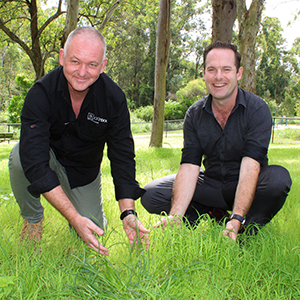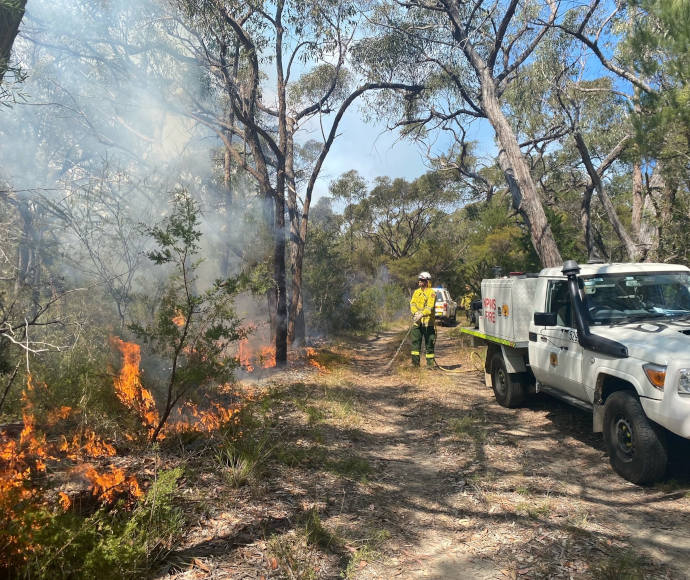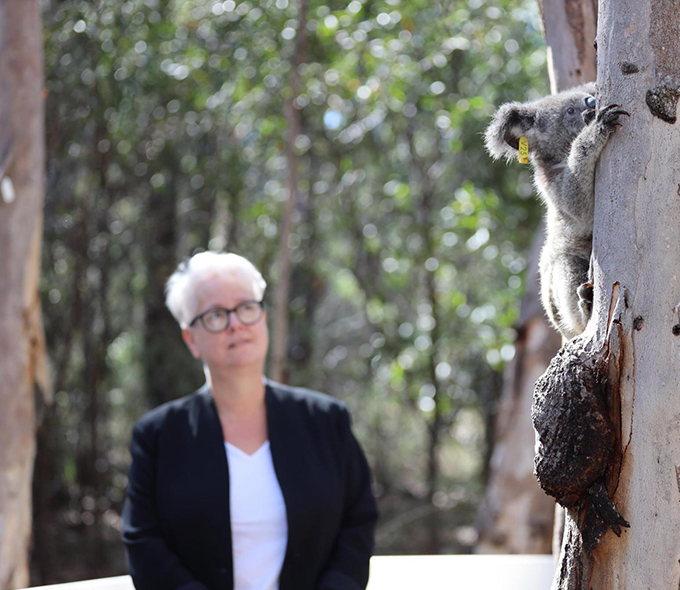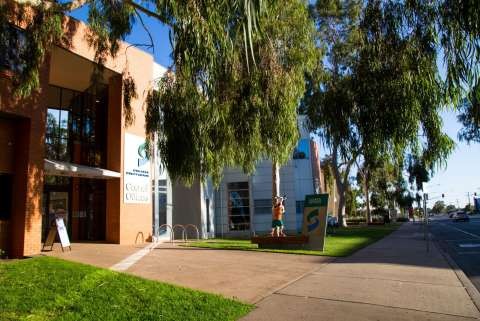Senator the Hon Katy Gallagher
Minister for Finance
Minister for Women
Minister for the Public Service
Senator for the ACT
The Hon Amanda Rishworth MP
Minister for Social Services
Member for Kingston
The Women and Women’s Safety Ministerial Council (Council) was convened virtually today, attended by:
- Senator the Hon Katy Gallagher (Commonwealth)
- The Hon Amanda Rishworth MP (Commonwealth)
- The Hon Justine Elliot MP (Commonwealth)
- Ms Yvette Berry MLA (Australian Capital Territory)
- The Hon Katrine Hildyard MP (South Australia)
- The Hon Madeleine Ogilvie MP (Tasmania)
- The Hon Ros Spence MP (Victoria)
- The Hon Sue Ellery MLC (Western Australia)
- The Hon Sabine Winton MLA (Western Australia)
- The Hon Shannon Fentiman MP (Queensland)
- The Hon Kate Worden MLA (Northern Territory)
- The Hon Lauren Moss MLA (Northern Territory)
- The Hon Jodie Harrison MP (New South Wales)
The Hon Yvette D’Ath MP (Queensland) and the Hon Natalie Hutchins MP (Victoria) gave apologies. Minister D’Ath was represented by an official.
- The Commonwealth Domestic, Family and Sexual Violence Commissioner, Ms. Micaela Cronin attended the meeting in an ex-officio capacity to support improved coordination of policy and services for those experiencing violence.
- Assistant Minister for Health and Aged Care, the Hon Ged Kearney MP updated the Council on women’s health.
- The Chief Executive Officer of the Workplace Gender Equality Agency, Mary Wooldridge updated the Council on Workplace Gender Equality public sector reporting.
- Victoria’s Public Sector Gender Equality Commissioner, Dr Niki Vincent attended the public sector workplace reporting item as an observer.
Ministers renewed their commitment to ending violence against women and children in one generation, particularly in light of the women and children who have lost their lives, both in tragedies recent and past. Ministers noted one life lost is too many and it is a collective responsibility to call out behaviours that lead to disrespect and, ultimately, violence against women and children.
The Council discussed achieving gender equality, improving women’s health, strengthening data collection on the gender pay gap, opportunities for improved family and domestic violence data sharing and finalising the Action Plans under the National Plan to End Violence against Women and Children 2022-2032 (National Plan).
The National Strategy to Achieve Gender Equality
Minister Gallagher provided an update on the Commonwealth’s work to develop a National Strategy to Achieve Gender Equality (the Strategy). The Strategy will drive change to make Australia one of the best countries in the world for gender equality. It will outline the whole of community, cooperative effort needed to achieve and sustain gender equality, guiding action across government, business, community and individuals.
Minister Gallagher noted the leadership that State and Territory Governments have shown in developing their own Strategies to achieve gender equality, and noted these were a key reference for the development of the National Strategy. Minister Gallagher and the Office for Women are continuing to engage with stakeholders to inform the ongoing development of the Strategy.
The Minister expressed appreciation for those that had engaged in consultations so far and noted the value of their insights.
Women’s Health
Assistant Minister Kearney attended as a guest and provided an update on Commonwealth progress towards better health outcomes for women and girls, including work on the impact of gender bias in the health system through the National Women’s Health Advisory Council and implementation of the National Women’s Health Strategy (2020-2030).
The National Women’s Health Advisory Council was established in early 2023 to provide strategic advice and recommendations to Government on how to improve the nation’s health system to ensure better, more targeted and effective healthcare for Australian women and girls. This includes consideration of gender equity in the health system, ways to address gender bias, and to improve women’s safety in healthcare.
To help inform its work, the National Women’s Health Advisory Council launched a Community Consultation Survey in late July to provide an avenue for the public, clinical experts, health providers and other stakeholders to share their experiences of gender bias in the health system.
A Senate inquiry into universal access to reproductive healthcare report was released on 25 May 2023. The report contains 36 recommendations, several of which, if taken forward, will require collaboration and coordinated action across jurisdictions to implement. The Commonwealth is considering the report and will consult across government, including with States and Territories.
Workplace Gender Equality Reporting
Mary Wooldridge updated the Council on public sector gender equality reporting to the Workplace Gender Equality Agency (WGEA).
The Council reaffirmed its commitment to progressing the National Cabinet agreement on reporting public sector workforce data to WGEA across six Gender Equality Indicators. The Council agreed that state and territory officials, through the Reporting Gender Data Group, develop a work plan and prioritise three of the six Gender Equality Indicators.
The Council agreed each jurisdiction would continue to work towards providing de-identified employee level data to WGEA as it is critical to ensure a robust national data set on gender equality. The Council also agreed to explore opportunities for the Data and Digital Ministers Meeting to support the Council’s efforts to share state and territory data with WGEA.
Family and domestic violence Data Sharing
Minister Gallagher provided an update to the Council on actions Data and Digital Ministers are taking to support implementation of the National Plan to End Violence against Women and Children 2022-2032 (National Plan) through national data-driven activities.
At their 23 June meeting, Data and Digital Ministers received a presentation on the National Criminal Intelligence System, which provides Australian law enforcement with secure, real-time access to a national view of criminal intelligence. This information dramatically improves national data sharing on perpetrators of gender-based violence.
The National Plan emphasises the need to continue to build a strong evidence base, recognising that our ability to provide quality responses to victim-survivors, hold perpetrators accountable, and keep women and children safe can be significantly improved through closing data gaps and building strong data-sharing mechanisms.
The Council agreed to work with Data and Digital Ministers to identify further opportunities to improve data-sharing nationally to support implementation of the National Plan.
National Plan to End Violence against Women and Children 2022-2032
Minister Rishworth presented the Council with the First Action Plan, Aboriginal and Torres Strait Islander Action Plan and the Outcomes Framework, which will guide the implementation of the National Plan.
The National Plan sets the national policy agenda for ending violence against women and children in Australia over the next ten years, and commits governments to partnership and sustained actions to end violence against women and children in one generation.
The Council discussed the importance of this work for Australia, and re-affirmed its shared commitment to leading and progressing the work needed through the action plans to ensure the outcomes of the National Plan are achieved.
First Action Plan 2023-2027
The First Action Plan has been developed in close consultation with victim-survivors, sector representatives and governments, and details actions by Commonwealth, state and territory governments towards ending gender-based violence in Australia.
This includes joint actions committed to by all governments that will ensure a consistent and coordinated approach to achieving the outcomes of the National Plan across the four key domains of prevention, early intervention, response, and recovery and healing.
Aboriginal and Torres Strait Islander Action Plan
The Aboriginal and Torres Strait Islander Action Plan lays the foundations for longer-term structural change. It aims to address immediate safety needs of Aboriginal and Torres Strait Islander women, children and families and will take effect in the short-term while the future standalone First Nations National Plan is developed.
The Aboriginal and Torres Strait Islander Action Plan has been developed through Nation-wide consultation with victim-survivors, community and sector representatives, and in genuine partnership with the Aboriginal and Torres Strait Islander Advisory Council on family, domestic and sexual violence.
Outcomes Framework
The Outcomes Framework will help track, measure, monitor and report change over the life of the National Plan. It includes long-term outcomes, addressing necessary change at the individual, community, service and systems level.
Finalisation of the Action Plans
The Council affirmed the importance of imminent final endorsement of the First Action Plan, dedicated Aboriginal and Torres Strait Islander Action Plan and Outcomes Framework through the relevant Commonwealth, state and territory government processes.
Minister Rishworth and Minister Elliot thanked the members of the Council for their jurisdictions’ dedication and commitment to ending gender-based violence in Australia within one generation.
Launch
The Council is working towards an August launch date, to be agreed to once all government endorsement processes are finalised.








